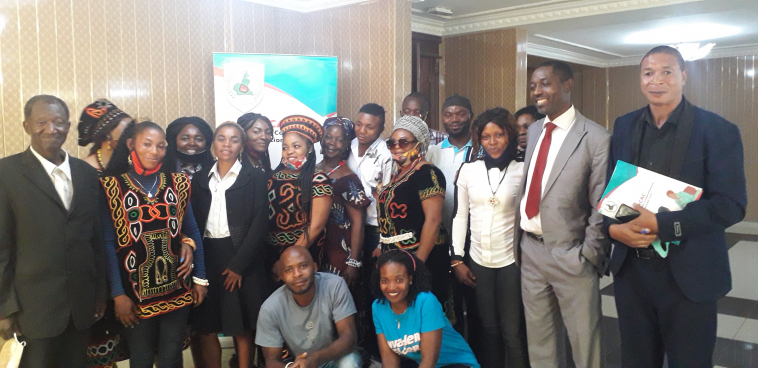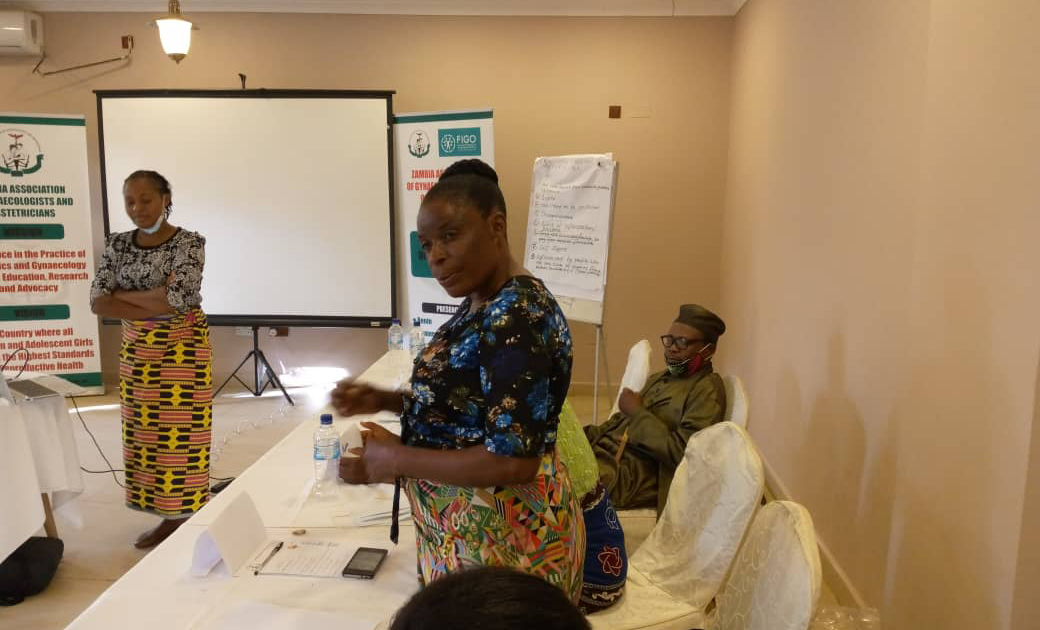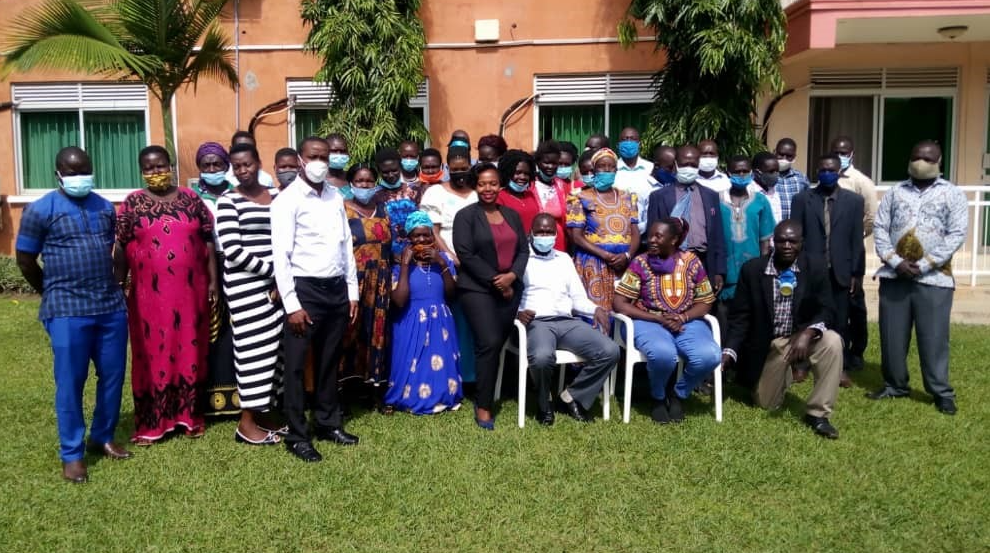Building bridges: OBGYNs engage with traditional healers to strengthen access to safe abortion in Africa

As part of FIGO’s ongoing Advocating for Safe Abortion Project (ASAP), three of our member societies shared their experiences engaging with traditional healers and the lessons they have learned from these activities and engagements.
‘Traditional healer’ is used to describe a person who provides counselling and/or herbal remedies to community members for an array of health issues. This may include supporting women and girls with their pregnancies, labour and reproductive health concerns, as well as providing the community with guidance on birth, wedding and death rituals, and other community-related affairs.
Traditional healers are often perceived as a trusted resource by community members, and are sometimes the first (and only) point of contact for women and girls who live in rural areas, as well as those living in poverty. For this reason, they were identified as a key stakeholder in the fight against unsafe abortions by the Society of Gynecologists and Obstetricians of Cameroon (SOGOC), the Zambia Association of Gynecologists and Obstetricians (ZAGO) and the Association of Obstetricians and Gynecologists of Uganda (AOGU).
Identifying the dangers
Unfortunately, seeking abortion services from a traditional healer carries high risks. Indeed, the World Health Organization has deemed abortion services carried out by traditional healers to be clinically unsafe – a term used to describe an abortion carried out by a person lacking the necessary skills or in an environment that does not conform to minimal medical standards, or both. As well as being illegal, abortions from by traditional healers can result in death, disability or infertility for the woman or girl.
In Zambia, ‘ZAGO realized that most cases of unsafe abortions were performed by traditional healers. Thus, to effectively reduce such cases, it was critical to engage with traditional healers,’ said Wilfred Zulu, Advocacy and Communications Coordinator for ZAGO. The situation was similar in Cameroon, as ‘factors such as cost, administrative and legal procedures, confidentiality issues at modern hospitals and [the requirement for] speed influenced the choice of traditional healers over hospitals for abortion-related services,’ explained Rita Yenjong, Project Manager for SOGOC.
Alongside the risk of abortions being carried out unsafely, traditional healers who do not want to perform abortions may turn women and girls away, without providing adequate information or referral. This can have negative outcomes such as further recourse to unsafe abortion, as well as feeding into the stigmatisation of women and girls who seek access to safe abortion services.

Addressing the risks
To address the risks associated with seeking traditional healers for abortions and to strengthen access to safe abortion services, OBGYN societies organised workshops with traditional healers. Dr Simon Peter Kayondo, Project Coordinator with AOGU, explained the approach used in Uganda:
‘For each region, we selected a number of traditional birth attendants, traditional faith healers and herbalists from each of the districts, and invited them to a one-day sensitisation workshop. At this sensitisation, we usually use the local language, as English speakers are few. We then run them through the statistics that highlight the burden of unsafe abortion, the impact of the cultural and religious norms and values on the continued unsafe termination of pregnancy, the legal environment in the country on abortion, abortion harm reduction (harm reduction models are typically used to address a behaviour when there is a way to reduce morbidity and mortality without eliminating the behaviour) which includes appropriate referral, and the critical role traditional healers can play to strengthen access to safe abortions.’
Feedback from a participant who had attended a similar workshop organised by ZAGO, shared, ‘we now know that we need to stop providing abortion services because it is not safe and legal. From now on, we will be referring these clients to health facilities.’
Dr Kayondo, AOGU, reflected on the value of the workshops: ‘Engaging with this group has assisted us to understand the feelings of the people in the communities about many sexual and reproductive health services, including contraception and abortion care. This group has highlighted the weaknesses of the health care system and advised on how there can be improvements. They have also shown how they could be used more effectively to reduce preventable maternal mortality and morbidity from unsafe abortion.’

Engaging the healers
While the workshops highlighted the importance of OBGYNs engaging with traditional healers and vice-versa, Rita Yenjong, SOGOC, explained the importance of taking a non-judgement approach. ‘We had several discussions with the traditional associations and relevant partners to explain the objective of the workshop, clarifying that it wasn’t to judge the acts of the modern traditional healers; the workshops presented an insightful opportunity to share experiences and create a platform for collaboration.’
Similarly, Dr Kayondo, AOGU, cautioned that, ‘often, they [traditional healers] are weary of western medicine doctors – they think we are there to witch-hunt them. We wanted to reassure them this was not the case, in order to build trust and engagement and receive their attention.’ Wilfred Zulu, ZAGO, added that, ‘When engaging with them [traditional healers] it is also important to respect their work, listen to them and ask them how they can support the work of the [OBGYN] society to build a more meaningful collaboration.’
In order to combat maternal mortality and disability, the workshops illustrated the importance of engaging with diverse stakeholders, particularly those who do not belong to the clinical health-worker community. Building bridges and creating an environment in which honest discussions can take place is a critical step that reaps huge benefits. In Cameroon, Rita Yenjong believes that ‘A lot can be achieved in this partnership, both in the areas of prevention and harm reduction.’
Dr Kayondo concluded, ‘working in collaboration with traditional healers is crucial, together we (OBGYNS and traditional healers) can speak and act to deliver the same objective – to strengthen access to safe abortion services for and with women and girls. Traditional healers are key to sign-posting and referring women and girls with unwanted pregnancies to the health facilities that can offer them comprehensive, safe abortion services, including counselling. And by working with OBGYNs in this way, traditional healers can provide a tremendous service to their communities, and to all of the women and girls we serve.'